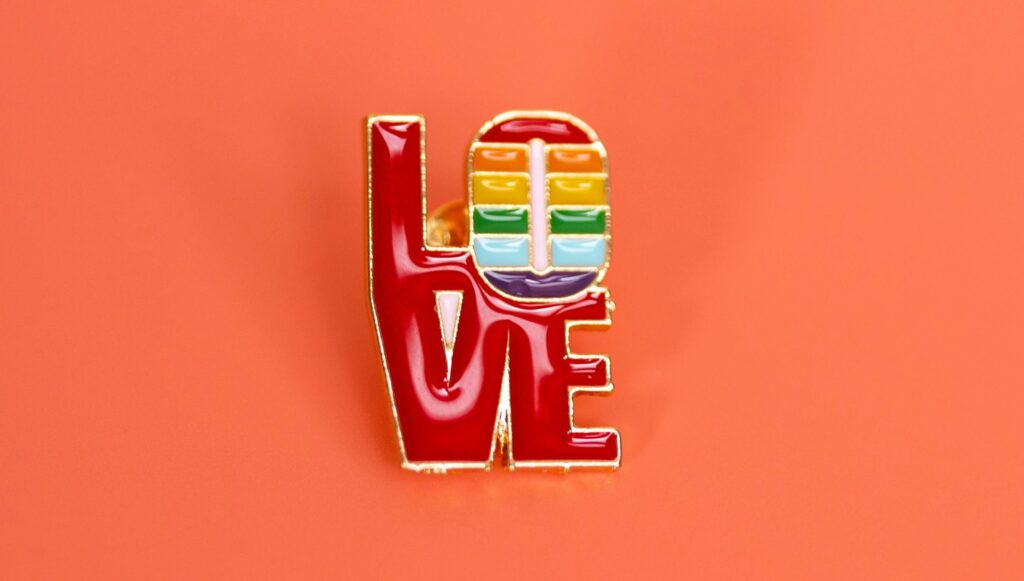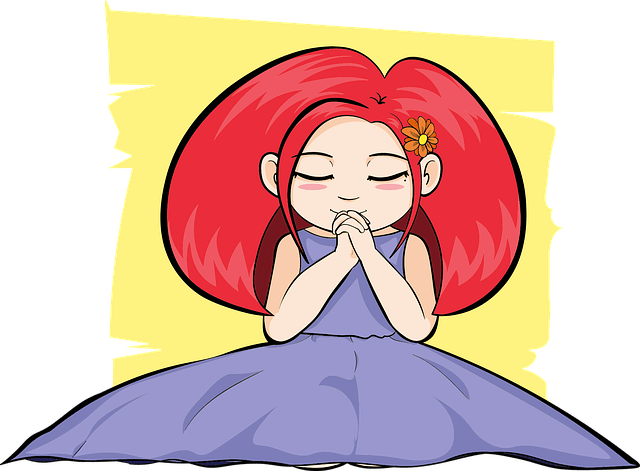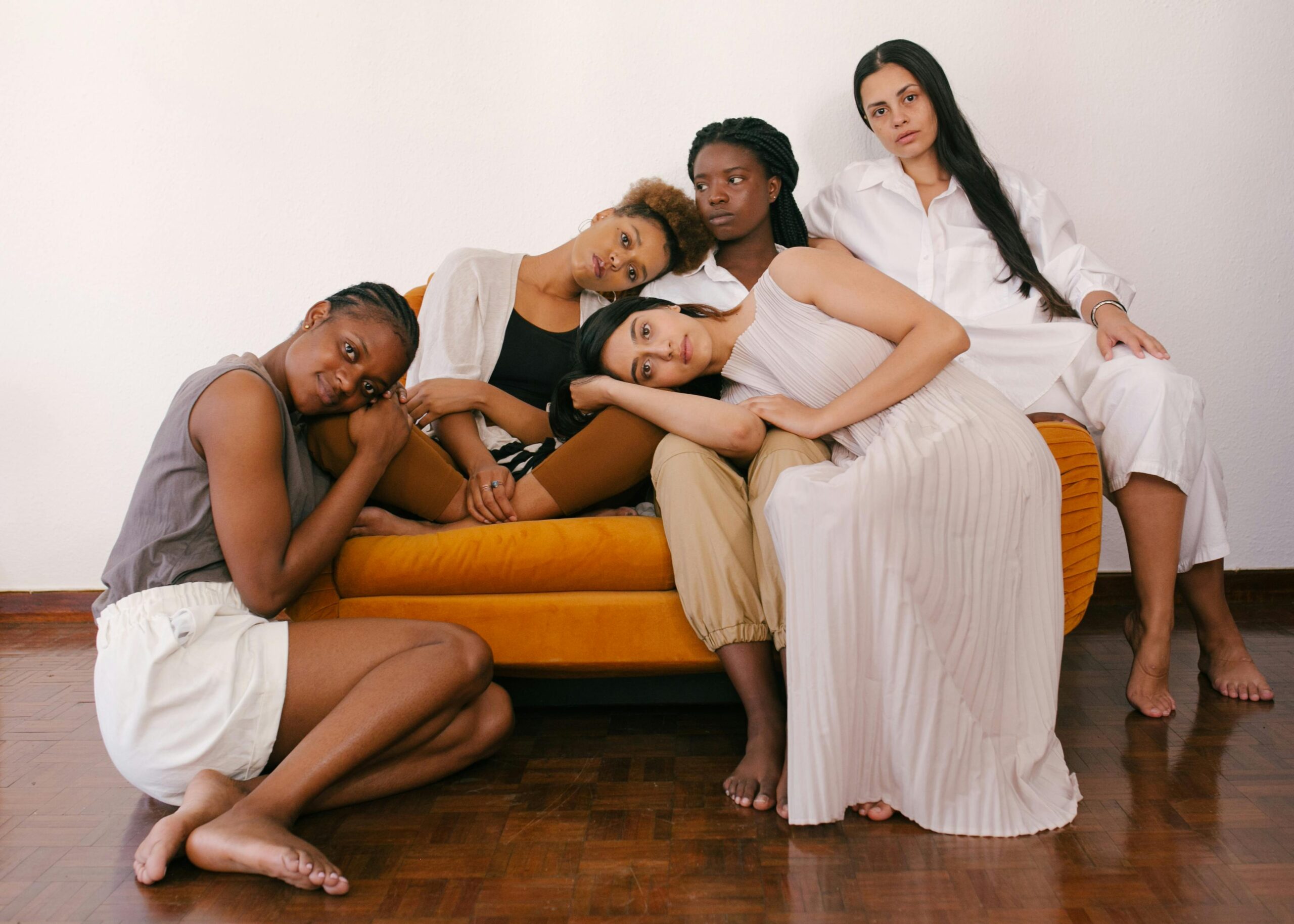As a community that’s based entirely on the ethos that women should feel at home in their bodies, comfortable in their identities, and safe out in the world, I wonder if any of you have been curious where I’ve been the past few weeks.
Or perhaps not…maybe none of you are reading my silly little articles anyway 😉

(yes I’m using this tweet again idc as a writer it is quite simply gold)
The truth is that I’ve had a hard time metabolizing all of my feelings — as well as the reactions of the people around me — since the election. We all know that different people have their own priorities in life that may differ from our own. We see this literally every day in our own individual lives. But it became that much more clear on Election Day that the collective people in our lives also have different priorities. And in this election, women did not come out on top.
I’ll admit that I was surprised. I really felt that women were more angry after Roe was overturned in 2022. I certainly was. But clearly I misjudged our electorate. And that made me sad. But it also made me reflective. I don’t choose to hate the people who voted with a priority other than mine as their #1. But I’ve spent a lot of time over the last few weeks thinking about how people who do share my priorities move forward from this new starting point. So if you’re one of them — or you know one and perhaps are curious — I’m going to do my best to outline how you might be feeling right now. And then I’m going to think about where we go from here, out loud with you all.
Where to start? I’ve been struggling with that for weeks (hence the delay in this article), so why don’t we just go ahead and begin with an outline of my personal experiences the day after the election. Below are some of the messages I received on November 6th:
BFF who lives in solidly blue state: I’m crying. Are you crying?
My dad: Hope you are hanging in there (and a picture of our puppies 🐶)
BFF who lives in blue city in solidly red state: I can’t help but feel personally attacked…like everyone around me hates me
Guy Friend #1: Hope you’re feeling ok
BFF who lives in purple state: I just want to hide under the covers
Guy Friend #2: You’re being irrational. Calm down.
BFF who lives in solidly blue state: I can’t quite think about it without feeling sick
Guy Friend #3: Well, many argued that Roe was decided too quickly. So if you really think about it, pushing it back to the states wasn’t such a bad thing…
Some of these are exact texts and others are my recollection of conversations. And I’ve done my best to cleverly disguise people’s identities (sorry, dad). But if it wasn’t obvious from the fact that I live in NYC, built a company focused on empowering women, and posted lots of Kamala memes on our social media page, I did not vote for our next president.
One thing that was made abundantly clear to me in the days/weeks leading up to the election and feels particularly important in its aftermath, is that deciding to hate someone because of who they voted for is not doing anyone — including ourselves — any favors. So if you came here for hateful rhetoric about Trump voters you’re in the wrong place.

That being said, the very real feelings of women (and women of color? Hoo boy) are still valid. And I want us to unpack them rationally, together. Because despite what Guy Friend #2 might think, I’m generally pretty capable of being rational. Even if sometimes I need to work harder to let myself simply feel my feelings (I’d say this is my #2 focus in therapy so…we’re working on it).
Alright, let’s dive in:
Does the United States hate women?
This is one of the dominant takeaways that a lot of my female friends have been voicing post-election. Why? Because in their opinion, you can draw a clear line from the first Trump administration to the reversal of key liberties that women for decades fought long and hard to win. I still remember the pit in my gut when RBG passed away, knowing in my bones that Roe was no longer safe. I was actually at a dinner party with a number of men who also called me irrational then too. Food for thought. But I digress.
As comfortable as it feels to directly blame Trump as a human being for this catastrophic loss, the truth is always more complicated. Trump may have been the conduit to enable this final blow to take place, but an army of conservatives had been working behind the scenes for a long time (probably since Roe was originally decided tbh) to get this to happen. They worked to appoint judges in key seats. They worked to push through litigation that would undermine Roe’s efficacy. And they finally succeeded with the help of the first Trump administration.
All of that evidence does suggest that there is some hatred of women brewing in there…right? And any woman who has lived in the United States long enough knows that the underlying misogyny that festers in America is anything but eliminated.
But I argue that reducing this issue down to “men hate women” is not only too derivative. It is quite simply not helpful. At Revellations, a key part of our philosophy is to “empower women without hating men” — and if the last few weeks have done anything to me it’s made me realize just how important that distinction is going to be as we move forward.
Men feel lost too. And they’re allowed to feel lonely and uncertain of their own place in society. Maybe it’s a different beast than the threats of violence we face regularly as women or the legitimate fear that we now have to feel when we contemplate getting pregnant. But their emotions are still real too.
So I’m going to put a pin in the “everyone hates women” rhetoric here at Revellations, and instead focus on how we can all find common ground.

(It’s a cute pin ok. Only love here.)
So does that mean we’re being irrational?
NO. That is not at all what I’m saying. And the more I talk to the women in my life the more angry I feel. And the more certain I am that our fears are legitimate.
When Roe was overturned I was astounded by how few men in my life truly understood what that meant. And in the years since, I continue to be shocked by how little men understand about how women’s bodies work. The number of things that need to go right for a supposedly “normal” pregnancy to take place (or be prevented). And how scary it is to feel that if something did go wrong, you might not be able to do anything about it.
Do I think that there is going to be a national abortion ban in the next four years? Personally, no. I actually think the events that the overturning of Roe set in motion will take place in the underbelly. In the slow chipping away at accessibility so that it’s easy to say out loud that they are NOT banning abortion. All the while subtly rerouting the means to access reproductive care such that only those in the most privileged positions can readily access it.
As one of my guy friends unhelpfully pointed out the day after the election — I am one of those privileged few. I live in NYC, have means, access to healthcare, and no real reason why I would ever struggle to achieve any reproductive goal that I might want.
But this isn’t about me. This is about women.
So how do we move forward as a collective of women? I honestly don’t know. But here’s where I’m starting…
My personal hypothesis is that the erosion of women’s reproductive rights will come primarily through impact litigation. Remember how scary it was when it looked like a legal case might overturn the FDA’s approval of mifepristone? That’s what I think we need to look out for in the years ahead.
As a refresher for anyone whose radar this wasn’t on, here are the basics:
Mifepristone is a pill that a lot of women take when they realize they’re pregnant but they don’t want to be. It’s a drug that blocks a hormone (progesterone) that would basically encourage the pregnancy to continue. Think of it like Plan B, but instead of using it the moment after you realize you might have an issue (like a broken condom), it’s been a few days or weeks at this point. If the name of the hormone progesterone sounds familiar, it’s because it’s one of the primary ingredients of most hormonal birth control.
To take it back even further (and maybe for the men reading this, if there are any 👋), when a woman gets pregnant, a fertilizes egg essentially implants itself in a women’s uterine lining and starts building cells that will eventually grow complex enough to be a standalone human being. At the moment of implantation, this is really just a tiny sac of cells. And a lot has to go right for those cells to become a baby.
If a woman doesn’t want to be pregnant, the first and easiest thing to do is to take mifepristone. What this pill (and the second one that she takes a few hours later, misoprostol) does is essentially tells a woman’s body to shed the sac of shells, sort of like she sheds her uterine lining during her period each month. This process can happen at home and, if all goes well, is like an uncomfy extra period that month #yay.
If her body doesn’t properly expel the cells, there’s a chance that the woman will need to go to a healthcare provider for a procedure. This procedure, known as a D&C (short for dilation & curettage) is a NON-surgical procedure where a doctor will essentially “scrape” the tissue from the uterus that contains the sac of cells. A D&C is the same procedure a woman might have to undergo if she has an ectopic pregnancy, or a miscarriage where her body doesn’t fully expel the cells properly.
Why am I spelling all of this out? Honestly, because I can’t get over how few men in my life understand it and still think it’s ok to have opinions on abortion. So I’m kind of hoping to give you an easy, non-scientific paragraph or two that you could copy/paste if you ever needed to explain it to someone. To any scientists reading this, I’m so sorry for any over simplifications you feel I’ve made here. Pls forgive me.

But beyond the basics, I also hope this elucidates why if we lost access to mifepristone it would be a really big deal. Yet still not the same as banning abortion outright. Conservatives could ban mifepristone and still argue that there are other ways to access abortions and they’re just trying to keep women “safe”. That women can still make an appointment for a D&C. But by requiring women to get a D&C no matter where they are in the lifecycle of a pregnancy, they’re also increasing the amount of control that they have over how and who can access the procedure.
Did you know that many states have a mandatory waiting period before a woman can schedule a D&C? Did you know that others require counseling so that the woman can prove that she’s sure of her own mind?
These are the types of tiny steps I’m talking about that don’t technically “ban” abortion, but just make it a bit more difficult. Until it’s next to impossible for the majority of women to access it.
Back to mifepristone, because it’s a great example of how I think conservatives will erode access to reproductive care. In 2022, a group of doctors got together and sued the FDA, arguing that they should never have approved the use of mifepristone in the first place. (To any lawyers out there, I ask for the same forgiveness I begged for earlier from the scientists 🙏)
If the suit had succeeded, women might have lost access to the easiest method of terminating an early pregnancy. This method can be used up to 12 weeks into a pregnancy and at the time of the suit was used in nearly two thirds of all abortions. Easy, safe, effective, and at home. Without mifepristone, those women would all have had to schedule D&Cs with their healthcare providers, many of whom don’t perform the procedure (especially in more conservative states), thus making it harder to access (duh).
If you, like me, watched this case with growing dread, then you were relieved when it didn’t succeed.

#phew
But only for a second. Because the ruling didn’t actually protect the FDA’s approval. It simply said that the group of doctors (The “Alliance for Hippocratic Medicine” — formed months after Roe was overturned) hadn’t actually been in a position to bring the suit forth in the first place. These doctors didn’t actually prescribe mifepristone, therefore the suit was irrelevant for them. Kind of stupid on their part, but also terrifying when you think about the implications.
What happens when a similar suit is brought forth (as it already has been in some states) with a group of doctors that it actually impacts? Will our conservative government mobilize the DOJ to fight the suit? What will the Supreme Court decide? I’ll leave that question here for you to ponder…
This article has become so much longer than I originally intended. And that’s partly because I realized how much time I wanted to spend explaining some of the basics of why this problem feels so personal, so visceral to women. The seemingly tiny details that lawmakers have no idea about, but that we experience in our own bodies each and every month, are ignored or distorted to write headlines about how “no one” wants to ban abortion outright and we — the hysterical progressive women of America — should just calm down.
But we’re not hysterical. We’re not even being irrational. We’re afraid because we quite literally feel it in our bodies.
So what do we do? That’s where I’m asking for your help.
You’ve heard my hypothesis that I think this is going to play out in the courts. And not just over the next four years but for many more. But what do you think? Do you agree? Or have another angle to add?
I look to influencers like Emily Amick and Sami Sage to keep me sane when I start to spiral. And to help me think about what actions I can take from a political perspective to protect what’s most important to me (PS you should check out their book Democracy in Retrograde that goes into this in detail). And on here I will continue to talk about the day-to-day issues that we as women face in life, the workplace, and beyond. But I also know this is a strong, fierce community of women that probably have amazing ideas and actions that they’re already taking for us to protect our right to make decisions about our own bodies.
So let’s hear it…what do you think?
